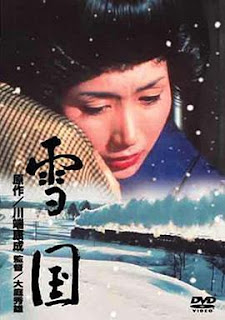21. Lí ū kì ji̍t-kì?
Shimamura thâu-chi̍t-pái ù tio̍h chiah léng ê thâu-chang, kiaⁿ chi̍t-tiô. I kám-kak, hoān-sè m̄-sī in-ūi thiⁿ-khì hân-léng, sī chit-chióng thâu-mo͘ pún-sin ê iân-kò͘, só͘-í kim-kim kā khòaⁿ. Cha-bó͘ tī phōe-lô͘ téng áu chéng-thâu-á tih sùiⁿ, bô chi̍t-sî thêng.
"Lí tih sùiⁿ sáⁿ-mih?"
I mūi kòe liáu, cha-bó͘ iáu-sī tiām-tiām áu chéng-thâu-á kòe chi̍t-khùn.
"He sī gō͘-goe̍h jī-saⁿ."
"Sī oh? Lí tih sùiⁿ ji̍t-chí hioh? Chhit-goe̍h hām peh-goe̍h liân-sòa lóng sī tōa-goe̍h oh."
"Hēⁿ, tē chi̍t-pah káu-cha̍p-káu kang. Tú-hó sī tē chi̍t-pah káu-cha̍p-káu kang."
"Lí ná ē hiah chheng-chhó, ē-kì-lih sī gō͘-goe̍h jī-saⁿ?"
"Hian ji̍t-kì, sûi tō chai-iáⁿ lah."
"Ji̍t-kì? Lí ū kì ji̍t-kì?"
"Hmh. Tha̍k kū ê ji̍t-kì chiâⁿ chhù-bī. Siá ji̍t-kì sáⁿ-mih to m̄-bián am-khàm. Ka-tī koh tha̍k ê sî mā ē kiàn-siàu."
"Tang-sî khai-sí kì?"
"Khì Tokyo pôe-chiú ê bô kú í-chêng. Hit-chūn chîⁿ bô chē, ka-tī bé bē khí ji̍t-kì phō͘, kan-ta iōng nn̄g-saⁿ-sián chîⁿ bé ê cha̍p-kì phō͘-á, iōng chhioh ōe keh-á, iân-pit siah chiam-chiam ōe ê sòaⁿ chìn hó-khòaⁿ. Phō͘-á chóa ùi téng-kak kàu ē-kak, iōng sè-sè ê jī siá móa-móa. Kàu ka-tī ū chîⁿ bé ji̍t-kì-phō͘ ê sî, tō bē-sái ah. Mi̍h-kiāⁿ tō iōng kah chìn thó-chè. Liān siá-jī, í-chêng iōng kū pò-chóa, taⁿ lóng ti̍t-chiap iōng pe̍h-chóa siá."
"Siá ji̍t-kì lóng bô thêng?"
"Hmh, cha̍p-la̍k hòe kì ê hām kin-nî kì ê siāng chhù-bī. Ta̍k-pái lóng sī ùi iàn-hōe tún lâi, khùn-saⁿ ōaⁿ hó tō sûi kì. Tún lâi ê sî chìn òaⁿ ah, siá leh, siá leh tō khùn khì ah. Ū-ê só͘-chāi chit-má mā khòaⁿ ē chhut."
"Sī án-ne oh?"
"M̄-koh, mā m̄-sī ta̍k-kang kì, mā ū bô kì ê sî-chūn. Tī chit-khoán soaⁿ-lāi, khì iàn-hōe, ta̍k-hāng lóng mā kāng-khoán. Kin-nî kan-ta bé tio̍h ta̍k-ia̍h lóng ìn ji̍t-kî ê, bô hó iōng. In-ūi kì ê sî, ū-sî mā ē siá kah chìn tn̂g."
--
21. 你有記日記?
Shimamura 頭一擺焐著 chiah 冷 ê 頭鬃, 驚一趒. 伊感覺, 凡勢毋是因為天氣寒冷, 是這種頭毛本身 ê 緣故, 所以金金 kā 看. 查某 tī 被爐頂拗指頭仔 tih sùiⁿ, 無一時停.
"你 tih sùiⁿ 啥物?"
伊 mūi 過了, 查某猶是恬恬拗指頭仔過一睏.
"He 是五月二三."
"是 oh? 你 tih sùiⁿ 日子 hioh? 七月和八月連紲攏是大月 oh."
"Hēⁿ, 第一百九十九工. 拄好是第一百九十九工."
"你那會 hiah 清楚, 會記 lih 是五月二三?"
"掀日記, 隨 tō 知影 lah."
"日記? 你有記日記?"
"Hmh. 讀舊 ê 日記誠趣味. 寫日記啥物 to 毋免掩崁. Ka-tī koh 讀 ê 時 mā 會見笑."
"當時開始記?"
"去 Tokyo 陪酒 ê 無久以前. 彼陣錢無濟, ka-tī 買袂起日記簿, 干焦用兩三仙錢買 ê 雜記簿仔, 用尺畫格仔, 鉛筆削尖尖畫 ê 線晉好看. 簿仔紙 ùi 頂角到下角, 用細細 ê 字寫滿滿. 到 ka-tī 有錢買日記簿 ê 時, tō 袂使 ah. 物件 tō 用 kah 晉討債. 練寫字, 以前用舊報紙, 今攏直接用白紙寫."
"寫日記攏無停?"
"Hmh, 十六歲記 ê 和今年記 ê 上趣味. 逐擺攏是 ùi 宴會 tún 來, 睏衫換好 tō 隨記. Tún 來 ê 時 chìn 晏 ah, 寫 leh, 寫 leh tō 睏去 ah. 有 ê 所在這馬 mā 看會出."
"是 án-ne oh?"
"毋過, mā 毋是逐工記, mā 有無記 ê 時陣. Tī 這款山內, 去宴會, 逐項攏 mā 仝款. 今年干焦買著逐頁攏印日期 ê, 無好用. 因為記 ê 時, 有時 mā 會寫 kah 晉長."
--
21.
Shimamura looked at the hair and wondered whether the coldness that had so startled him--he had never touched such cold hair, he said--might be less the cold of the snow-country winter than something in the hair itself. The woman began counting on her fingers. For some time she counted on.
"What are you counting?" he asked. Still the counting continued.
"It was the twenty-third of May."
"You're counting the days, are you. Don't forget that July and August are two long months in a row."
"It's the hundred-and-ninety-ninth day. It's exzactly a hundred and ninety-nine days."
"How did you remember it was the twenty-third of May?"
"All I have to do is look in my diary."
"You keep a diary?"
"It's always fun to read an old diary. But I don't hide anything when I write in my diary, and sometimes I'm ashamed to look at it myself."
"When did you begin?"
"Just before I went t o Tokyo as a geisha. I didn't have any money, and I bought a plain notebook for two or three sen and drew in lines. I must have had a very sharp pencil. The lines are all neat and close together, and every page is crammed from top to bottom. When I had enough money to buy a diary, it wasn't the same any more. I started taking things for granted. It's that way with my writing practice, too. I used to practice on newspapers before I even thought of trying good paper, but now I set it down on good paper from the start."
"And you've kept the diary all this time?"
"Yes. The year I was sixteen and this year have been the best. I write in my diary when I'm home from a party and ready for bed, and when I read it over I can see places where I've gone to sleep writing. . . . But I don't write every day. Some days I miss. Way off here in the mountains, every party's the same. This year I couldn't find anything except a diary with a new day on each page. It was a mistake. When I start writing, I want to write on and on."
--


No comments:
Post a Comment